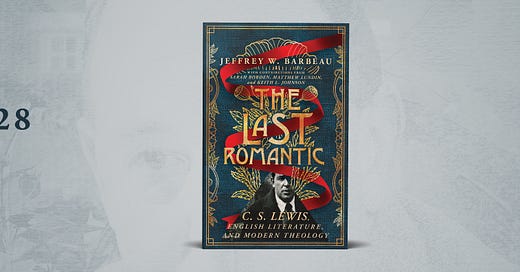C.S. Lewis among the influencers
Jeffrey Barbeau talks about his new book on C.S. Lewis, *The Last Romantic*
Fellow Pilgrims,
Today’s post is an interview with my friend Jeffrey Barbeau about his brand new book, The Last Romantic: C. S. Lewis, English Literature, and Modern Theology. So many of us have been shaped by C.S. Lewis, and I’m excited to share this interview and book with you.
The book releases TOMORROW with Intervarsity Press, and you can grab your p…
Keep reading with a 7-day free trial
Subscribe to Church Blogmatics by Beth Felker Jones to keep reading this post and get 7 days of free access to the full post archives.





